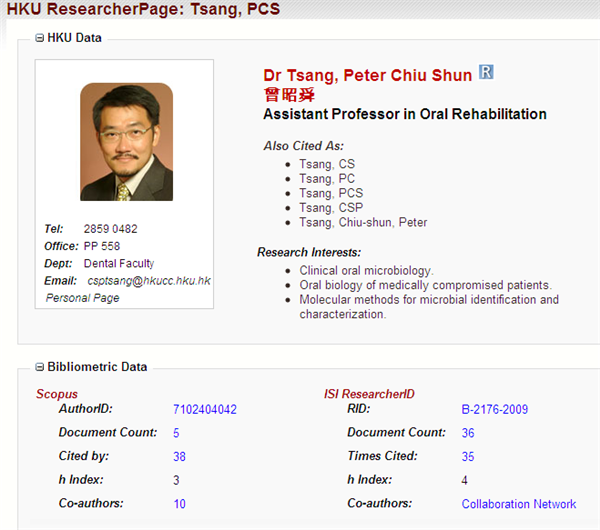Reputation management and researchers
I have written a couple of times recently (here and here) about institutional and indvidual reputation management.
Think, for example, of faculty profiles: the managed disclosure of expertise and research activity. This has often been an informal personal or departmental activity. However, there is now a variety of institutional initiatives which may pull together data about expertise, experience, publications, grants, courses taught, and so on (see OSU Pro at OSU, or Vivo at Cornell, for example). Such initiatives may sit between between several organizational units on campus: Research Support, PR/Communications, IT, Library. They are also at the intersection of different systems: enterprise (Peoplesoft, for example), course lists, research/grants management, bibliographic. At the same time, researchers may have presences in emerging network level research social networks (Mendeley or Nature Network for example), in disciplinary resources (Repec, for example), and, of course, in general use services (Linkedin, for example). There are also commercial services which support such activity in different ways, Community of Science or Symplectic for example. [Reputation enhancement]
The Scholars Hub at the University of Hong Kong
The Scholars Hub is the institutional repository at Hong Kong University. It has recently been enhanced with author pages which pull data from several sources including:
- Name & Contact Details: HKU Communications Directory
- Picture & Biography: Departmental web pages
- Media Spokesmanship: HKU Communications & Public Affairs Office
- Metrics: Scopus & ISI ResearcherID
- Open access outputs: HKU Scholars’ Hub.
Each is harvested from its source silo and integrated to form an author profile. In a recent presentation [ppt] about the approach, University Librarian Tony Ferguson and David Palmer describe how researchers can control their own page, and emphasise the incentives for contribution in the context of an overall alignment with the university mission of ‘knowledge exchange’ (KE). KE is defined on the presentation splash page: “The HKU definition of KE includes the act of making HKU generated knowledge and skill sets accessible to business, government and the community.” They suggest that the pages give authors a valuable service and point to success in search engine retrieval. For an example, see (click on the image to see the full page):

The service also attempts to bring together different versions of author names. They assign a unique local identifier to each researcher, which is in the page URL (rp00026 in the above example).
The bibliometrics section is in preparation for the HKU annual Performance Reviews, and the Hong Kong Research Assessment Exercise.
Picture: I took the feature picture in the main library of the University of Hong Kong. Floor feature to assist navigation.
Provenance: Cosmetic amendments on 28 March 2021, including adding feature picture and headings. Originally published on 2 January 2010 at Lorcan Dempsey's Weblog.
Acknowledgement: Thanks to Tony Ferguson and David Palmer for a note on the work supporting this initiative.
Related entries:




